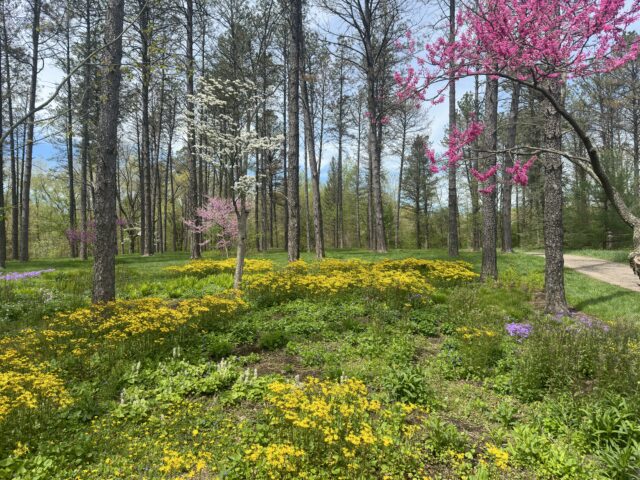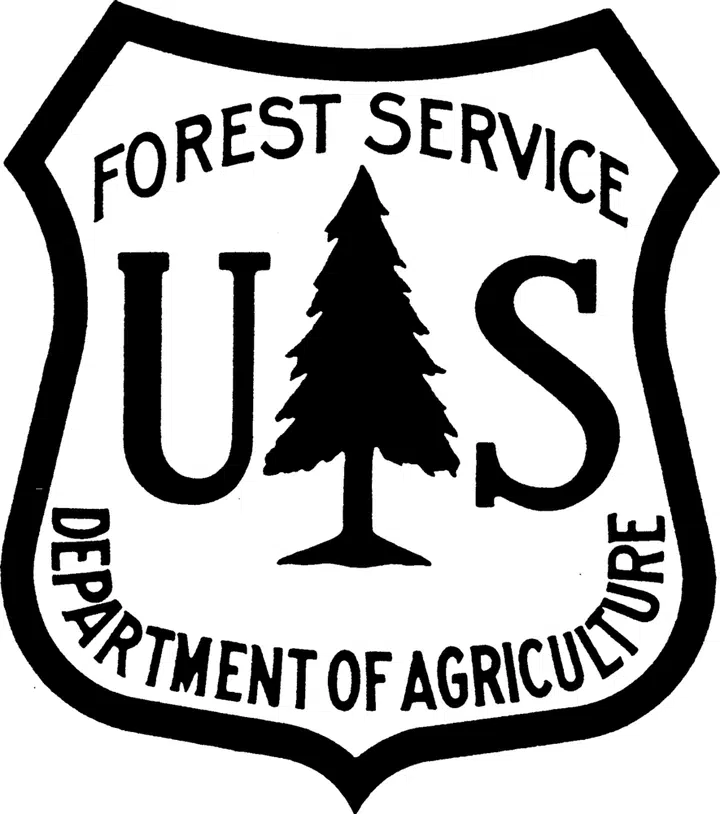Breaking News: Pollinators contribute to flowering plant diversity
September 8, 2021

Holden Forests & Gardens (HF&G) Scientist Na Wei, Ph.D., and her collaborators from the University of Pittsburgh and East Tennessee State University discovered how pollinators may contribute to the maintenance of flowering plant diversity. This study that accelerates our understanding of biodiversity conservation is now published in the journal Nature.
“For years, scientists have been puzzled by how numerous rare plant species coexist with abundant species in diverse communities,” said Dr. Na Wei. “We believe that pollinators can be one critical piece of this puzzle.”
Pollinator service is often limited in nature, and so plants compete with one another for those pollinators. One way to overcome pollinator limitation, is for plants to form specialized relationships with some pollinators, thereby ensuring that pollinators are available for plant fertilization.
Dr. Wei and her colleagues worked for two years in serpentine grassland of the McLaughlin Natural Reserve in California. Over that time, they monitored 416 pollinator species that visited 79 different flowering plant species. Pollinators included bees, wasps, flies, butterflies, moths, and hummingbirds.
Dr. Wei and her colleagues found that specialization between flowering plants and pollinators was greater than expected, and rare plants seemed more likely to form specialized relationships with pollinators to ensure their reproduction and persistence. What’s more, flower characteristics were important predictors of specialization, with plants having pea-like flowers more specialized than plants with aster-like flowers, for example.
Dr. Wei and her colleagues also found that not all rare plant species had specialized pollinators but had to use the shared pollinator services. For these rare plants, pollinators that were primarily attracted by abundant species can stop by and pick up rare species pollen as well. This benefits rare species at the cost of abundant species.
The results of this study have clear implications for conservation of native plants and natural systems. It suggests that to conserve rare plant species and diverse plant communities, we also need to conserve the diversity of pollinators that plants depend on for reproductive success. Dr. Wei and her colleagues emphasized in their paper that “In light of pollinator losses worldwide and climatically induced shifts in plant abundances, understanding how pollinators contribute to the persistence of rare plant species is arguably one of the most critical tasks for biodiversity conservation in the Anthropocene.”

Key collaborators on the project include Dr. Tia-Lynn Ashman of the University of Pittsburgh, Dr. Rainee Kaczorowski of the University of Pittsburgh, and Dr. Gerardo Arceo-Gómez of East Tennessee State University.
Paper cited
Na Wei, Rainee L. Kaczorowski, Gerardo Arceo-Gómez, Elizabeth M. O’Neill, Rebecca A. Hayes, Tia-Lynn Ashman. “Pollinators contribute to the maintenance of flowering plant diversity”. Nature (https://www.nature.com/articles/s41586-021-03890-9)
Profile
Na Wei, Ph.D. ,Scientist
nwei@holdenfg.org
About Holden Forests & Gardens
Holden Forests & Gardens is made up of two of Northeast Ohio’s most important environmental and cultural institutions — the Holden Arboretum and Cleveland Botanical Garden — whose mission is to connect people with the wonder, beauty, and value of trees and plants, to inspire action for healthy communities. The 14th largest public garden in the country, Holden Forests & Gardens has over 17,000 member households and an annual attendance of over 350,000 for whom we strive to provide inspirational and educational visitor experiences.











